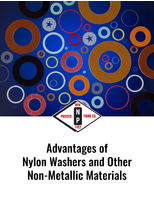SABIC Announces Investments to Solve Customer Challenges

In light of dynamic industry trends and rapidly changing technologies, SABIC today announced a number of investments that will deliver compelling competitive advantages in its core product portfolio as well as its high performance offerings. At a time when some engineering thermoplastics manufacturers are restructuring, SABIC is investing to drive operational efficiencies, increase capacity, leverage world-class technology, and convert insights into solutions for the industries it serves.
"We are laser-focused to deliver on diverse customer needs. We're investing to ensure our plants are as competitive and sustainable as they can be, while converting our deep understanding of industry trends and resulting customer challenges into solutions that address the exact requirements," Keith Smith, executive vice president SABIC, Innovation Plastics business said.Â
Expanding capacity to meet global demand
Over the next five years, SABIC's Innovative Plastics business will add a total of 338KT of capacity across its entire global portfolio. For polycarbonate alone, SABIC plans to bring on line nearly 35% of the world's publicly announced capacity expansions as part of its joint venture with SINOPEC in Tianjin, China. The company's Petrokemya facility will increase Innovative Plastics' annual ABS production by nearly 80% when it comes on line later this year. And today, SABIC is announcing a 30% phased increase in its global ULTEM resin capacity over the next five years, while evaluating additional opportunities for further ULTEM resin expansion.
One particular investment where SABIC continues to take a long view of the industry is in polycarbonate. Given that 600 KT of new polycarbonate capacity came on line over the last four years, today's industry margins are facing greater pressure. While some companies that do not have competitive assets have announced shutdowns, SABIC remains committed not only to the polycarbonate industry, but also to ensure that customers have access to a broad portfolio of solutions.
"The polycarbonate space has become extremely competitive over the last few years," Smith continued. "We believe that to effectively support global customers for years to come, we must have the vision and commitment to continuously reinvest in new technologies and efficient processes, even during the most challenging of times."
Competitive and Sustainable Assets
SABIC has a number of operational initiatives underway that will drive greater reliability and production efficiencies – ultimately translating into more efficient and reliable production for our customers.
Two of these projects are in progress at SABIC's Mount Vernon, Indiana facility and are aimed at increasing the site's global competitiveness and sustainability. The first project is the installation of a state-of-the-art cogeneration plant that will use natural gas to create the majority of the site's steam. The move will reduce the facility's greenhouse gas intensity by 35-40 percent compared to 2010 levels and increase the plant's overall energy efficiency. The second project will drive chemical production efficiency improvements of 20-30 percent in Mount Vernon's polycarbonate operation as well as promoting greater safety, and improving energy efficiency and sustainability.
SABIC also has key initiatives underway that will improve plant reliability resulting in increased equipment uptime and production. The company has plans in place to target additional improvements to reduce costs, increase production and provide excellent customer service.
Lastly, SABIC converted one of Mount Vernon's units to run on different feedstock, increasing its overall competitiveness in PBT resin in North America.
Investing in Our Customers' Success
In addition to capacity and efficiency improvements, SABIC is also investing to leverage world-class technology and translate industry insights into solutions that meet the more sophisticated and rapidly evolving requirements of today's customers.
"At SABIC, innovation is more than a just a term, it is at the core of how we work," Greg Adams, vice president, Industry Marketing and Strategy, Innovative Plastics said. "We collaborate with customers to understand both today's and tomorrow's global challenges. Our mission is to turn those insights into solutions that enable our customers to achieve their goals."
SABIC has extensive experience in such collaborations with industry pioneers over the last 30 years: from the first laptop computers like the Compaq Portable to today's ultralight tablets, from Motorola's first mobile phone to today's more sophisticated smart phones like Xiaomi, and from the first exterior body solutions for early models of distinguished brands like General Motors to crash and energy management solutions for the iconic Jeep brand.
When converting industry and customer insights into solutions, SABIC leverages six key innovation capabilities:
•Â Â Â Â Â Â Â Â Collaborative Innovation – Collaborates with customers, industry designers and academia to help develop the right solutions faster and better.
•Â Â Â Â Â Â Â Â Concept Generation – Views customer challenges from new angles by developing geometric representations of innovative ideas and potential solutions.
•Â Â Â Â Â Â Â Â Material Science and Chemistry – Draws upon SABIC's rich science and technology know-how to help develop new material solutions and to improve existing ones to better answer industry needs.
•Â Â Â Â Â Â Â Â Process Technology – Performs state-of-the-art thermoplastic processing development to evaluate a solution's feasibility and then implement on a production scale.
•Â Â Â Â Â Â Â Â Part Design and Predictive Engineering – Utilizes software tools and engineering expertise to help virtually design and test parts to help customers minimize development costs and achieve competitive differentiation.
•Â Â Â Â Â Â Â Â Sustainability and Life Cycle Management - Performs product life cycle evaluations to suggest material candidates, design, processing and end-of-life treatment options to help customers achieve sustainability objectives.
"We utilize these innovation capabilities to find the best combination of technologies and services to solve problems – whether it's utilizing our own materials or collaborating with other world-class innovators to take 'merged' solutions to new levels," Thierry Materne, vice president Technology Innovation, Innovative Plastics said. "SABIC scientists stand ready to help customers achieve their aspirations."
Solution Highlights from NPE
SABIC's NPE booth has on display more than 50 examples of how the company is addressing customers' challenges across eight different industries. Key examples include:
3D-Printed Airplane Seating: This concept seat was designed to inspire aerospace seating tiers to take a fresh look at seat design and manufacturing methods. Collaborating with industry leaders in design and 3D printing, SABIC met its goal to bring a new concept to the industry to serve as an inspiration for future seating design.
3D-Printed Car: Pioneer Local Motors wanted to showcase the power of additive manufacturing technology by producing the world's first 3D-printed car "live" at the International Manufacturing Technology Show. Using one of SABIC's carbon fiber filled compounds, Local Motors was able to demonstrate the potential of additive manufacturing as a process technology that can shorten product development time, reduce prototype costs and enable greater design freedom.
All-Plastic Tailgate Concept: Automakers have long sought a viable, alternative to steel for this part of the vehicle. Previous tailgate concepts replaced only certain parts with plastic. SABIC's tailgate concept is an all-plastic solution that delivers the desired stiffness and strength in addition to weight savings of up to 30 percent compared to tailgates of a similar size, while increasing design freedom.
Automotive Instrument Panel: Leveraging SABIC's unique fiber orientation prediction capability, the company was able to deliver a thin-wall solution for the Jeep Cherokee instrument panel. The solution reduces the amount of material needed over the life of the program by 2.5 million pounds, and drives cost reductions and manufacturing efficiencies. This application is a Society of Plastics Engineers Automotive Innovation award winner in the Body Interior category.
Water Pump for Filtration Unit: SABIC's material solutions are helping VillagePump solve one of the world's biggest challenges – providing clean and affordable drinking water to rural regions around the world. The filtered water meets World Health Organization standards and can help reduce disease.
SABIC and brands marked with ™ are trademarks of SABIC or its subsidiaries or affiliates.
•Â Â Â Â Â Â Â Â Â Â Â Â Â Â Â Â Â Â Â Â High-resolution photos are available upon request
•Â Â Â Â Â Â Â Â Â Â Â Â Â Â Â Â Â Â Â Â SABIC should be written in every instance in all uppercase
ABOUT SABIC
Saudi Basic Industries Corporation (SABIC) ranks as the world's second largest diversified chemical company. The company is among the world's market leaders in the production of polyethylene, polypropylene and other advanced thermoplastics, glycols, methanol and fertilizers.
SABIC recorded a net profit of SR 23.3 billion (US$ 6.2 billion) in 2014. Sales revenues for 2014 totaled SR 188.1 billion (US$ 50.2 billion). Total assets stood at SR 340 billion (US$ 90.7 billion) at the end of 2014.
SABIC's businesses are grouped into Chemicals, Polymers, Performance Chemicals, Fertilizers, Metals and Innovative Plastics. SABIC has significant research resources with 19 dedicated Technology Innovation facilities in Saudi Arabia, the USA, the Netherlands, Spain, Japan, India, China and South Korea. The company operates in more than 45 countries across the world with around 40,000 employees worldwide.
SABIC manufactures on a global scale in Saudi Arabia, the Americas, Europe and Asia Pacific.
Headquartered in Riyadh, SABIC was founded in 1976 when the Saudi Arabian Government decided to use the hydrocarbon gases associated with its oil production as the principal feedstock for production of chemicals, polymers and fertilizers. The Saudi Arabian Government owns 70 percent of SABIC shares with the remaining 30 percent held by private investors in Saudi Arabia and other Gulf Cooperation Council countries.
ABOUT INNOVATIVE PLASTICS
SABIC's Innovative Plastics business is a leading, global supplier of engineering thermoplastics with an 80-year history of breakthrough solutions that solve its customers' most pressing challenges. Today, Innovative Plastics is a multi-billion-dollar company with operations in more than 35 countries and approximately 9,000 employees worldwide. The company continues to lead the plastics industry with customer collaboration and continued investments in new polymer technologies, global application development, process technologies, and environmentally responsible solutions that serve diverse markets such as Healthcare, Transportation, Automotive, Electrical, Lighting and Consumer Electronics. The company's extensive product portfolio includes thermoplastic resins, coatings, specialty compounds, film, and sheet. Innovative Plastics (www.sabic-ip.com) is a wholly owned subsidiary of Saudi Basic Industries Corporation (SABIC).
Innovative Plastics Media Contacts
Jodi Kennedy
E: jodi.kennedy@sabic-ip.com
T: +1 413-358-8356



